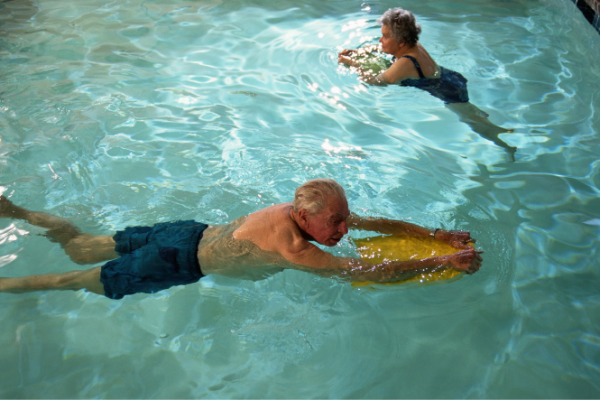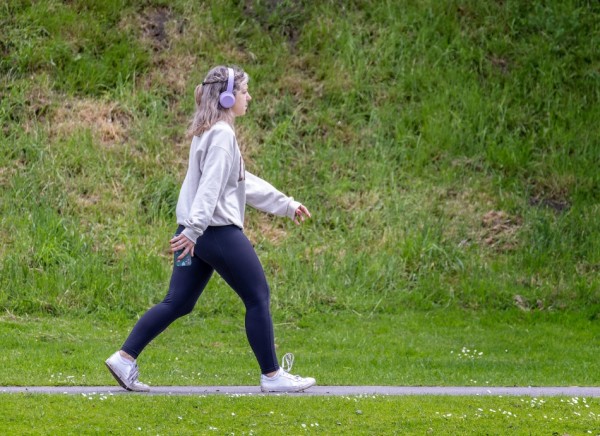You can now add Healthify as a preferred source on Google. Click here to see us when you search Google.
Healthy habits – how to make them stick
How to make new habits stick
Key points about how to make healthy habits stick
- Creating good, new habits and/or getting rid of bad, old ones can make a real difference to your life.
- Even the smallest change can make a big difference.
- When it comes to habits, what works for one person may not work for someone else. For example, getting up to go to the gym at 6am may be great for some, but a nightmare for others.
- To create new habits means exploring and finding habits that work for you and fit your individual personality and situation – and then making them stick.
- New habits/change doesn’t always need to be based on your physical health, it can be about anything that you want to try, such as a new hobby or mindfulness.

1. Choose your new habit
It may seem obvious but picking your new habit or habits is the first thing you need to do. Be specific about what you want to do. Keep in mind that this new habit will take time to form, so think about what is the smallest action you can take to work towards developing your new habit. For example, saying “I want be more physically active” is great but be specific, eg, “I will go for a 5-minute walk during my lunch break Monday to Friday”. This is an example, of how you can work towards increasing your confidence and making a long-lasting habit as you gradually increase the minutes of your walk. This small win every day will motivate you to keep going and do more! Read more about goals and goal setting.
 Image credit: Canva
Image credit: Canva
2. Know your why
Know why you want to form a new habit. Knowing your “why” will help you stick to your habit, stay motivated and reinforce its importance. For example, “I’m joining the gym because my doctor said I’m at risk of developing heart disease if I don’t start exercising” or "I want to be healthy for my whānau".
3. Be realistic
Be realistic about your new habit. Start small and build up otherwise you may set yourself up for disappointment. If you're finding it challenging to be consistent, scheduling can be a good strategy to try. For example, having specific and regular times and days for your activity in your diary or calendar can act as a reminder. If you want to aim to meditate for an hour every day, start small (just a few minutes each day) and build up over time – "I will meditate for 5 minutes at 8.25 before starting work at 8.30 Monday to Friday".
4. Write it down
Writing your resolutions or new habits down helps make them stick, keeps you accountable and means you have a written record to check back on. You could write down how long you did your activity for, or how easily you did it, then you can map your progress over time as your ability to do it builds up.
5. Make it regular
Forming new habits takes time and the more you do something the more likely it is to become a normal part of your life. So, make sure you do your new habit regularly and schedule it in so you're more likely to stick to it. You might like to try attaching a new habit to an existing one. For example, if you always leave the house at the same time to go to work, do your new activity/habit before you leave. That way, whenever you think about getting ready to leave for work, you'll be reminded to do your other activity first and you're more likely to do it.
6. Be prepared for setbacks
Everyone experiences setbacks or unexpected events that can upset even the best of plans. Ask yourself what might get in the way of creating your habit and what you can do to make sure you get back on track.
Don’t be too hard on yourself if you slip up – just re-set, stay on track and don’t give up!
7. Measure your progress
Measuring your progress gives you a real sense of achievement, so make sure you’re keeping track of what you’re doing. If you take up running, time yourself when you first start out and check your progress a few weeks later. Celebrate your progress by sharing your wins with friends or family.
8. Be prepared
Make it easy to stick to a new habit by thinking ahead and being prepared. For example, if you start swimming in the mornings before work, have everything packed the night before so it’s easy to grab your gear and leave the house.
9. Pair it up
Pairing up a new habit with something you already enjoy can make it easier for your new habit to stick. If you already love listening to music or podcasts, then pop some headphones in while doing a new habit such as going for a walk in the evening.

Image credit: Depositphotos
10. Know your triggers
Think about the kinds of things that may make it hard for you to stick to your new habit and watch out for them. For example, if you’re trying to give up sweet treats, then don’t walk past the bakery or go near the sweet aisle in the supermarket.
11. Include a friend
It's often easier to do something if you have company. Talk to some friends or members of your whānau and you might find they're keen to start a new hobby or make a healthy change themselves. Perhaps you could do something new together, and encourage each other to stay motivated. Just make sure it's a new habit that is relevant and important to you both, it probably won't stick if you're working towards somebody else's goal or dream.
References
- Habit sticks(external link) All Right?, NZ
- Ten tips to make a new habit stick(external link) All Right?, NZ
- How to make lifestyle changes stick(external link) Heart Foundation, NZ, 2021
- Five tips to make new habits stick(external link) Heart Foundation, NZ
- Creating health habits(external link) NIH News in Health, US, 2018
Credits: Healthify editorial team. Healthify is brought to you by Health Navigator Charitable Trust.
Reviewed by: Roselyn Singh, Health Coach, Auckland
Last reviewed:





